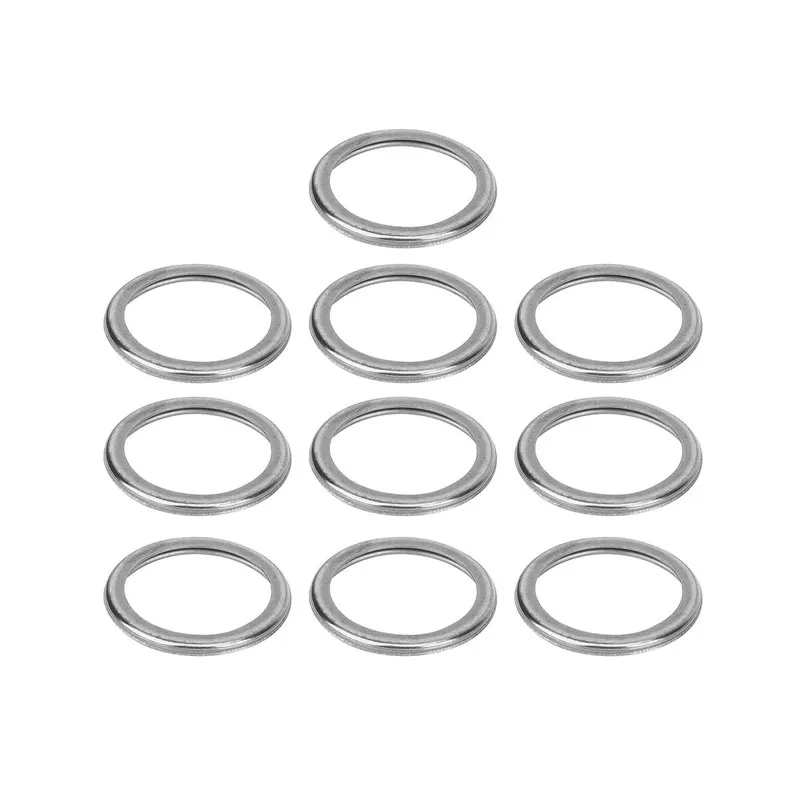Oil Drain Plug Washer Replacement for Enhanced Leak Prevention and Sealing Performance
Understanding Oil Plug Washers Importance and Best Practices
Oil plug washers, often overlooked in routine maintenance, play a crucial role in ensuring the proper functioning of an engine or any machinery requiring oil lubrication. These small yet vital components are designed to create a seal that prevents oil leakage and contamination, thereby maintaining the efficiency and longevity of an engine. In this article, we will explore the significance of oil plug washers, their types, and best practices for their maintenance and replacement.
What is an Oil Plug Washer?
An oil plug washer is typically a flat, circular gasket made from materials such as rubber, metal, or composite materials. It is placed between the oil drain plug and the oil pan of an engine. Its primary function is to provide a barrier that seals the joint, which helps retain oil and prevents it from leaking out during operation. A well-functioning oil plug washer is essential for maintaining the proper oil level in the engine, contributing to overall operational efficiency.
The Importance of Oil Plug Washers
1. Preventing Oil Leaks One of the primary roles of an oil plug washer is to prevent oil leaks that can lead to engine damage. Oil leaks not only reduce the oil level in the engine but can also create a mess and pose a safety hazard, especially if oil seeps onto hot engine components.
2. Contamination Prevention By sealing the connection, oil plug washers help prevent dirt, debris, and moisture from entering the oil system. Contaminated oil can significantly impair engine performance and may lead to costly repairs.
3. Enhancing Engine Longevity Regular maintenance that includes the inspection and replacement of oil plug washers can extend the life of the engine. A secure seal reduces wear and tear caused by fluctuations in oil pressure and keeps the engine running smoothly.
Types of Oil Plug Washers
Oil plug washers come in various types, tailored for different applications
oil plug washer

- Rubber Washers Commonly used in many applications, rubber washers are flexible and create a tight seal. However, they can degrade over time and may need more frequent replacement.
- Metal Washers Often made from aluminum or copper, metal washers provide a durable option for high-temperature applications. They are more resistant to wear but can be prone to deformation if over-tightened.
- Composite Washers These are made from a combination of materials, providing a balance between flexibility and strength. They are suitable for a wide range of applications and often have improved resistance to various fluids.
Best Practices for Maintenance and Replacement
1. Regular Inspection During routine oil changes, inspect the oil plug washer for signs of wear, such as cracks, deformation, or brittleness. If you observe any damage, replace it immediately.
2. Use the Right Type Ensure you are using the appropriate type of washer for your specific engine or application. Refer to the manufacturer’s specifications for recommendations.
3. Proper Tightening When reinstalling the oil plug, avoid over-tightening, which can cause damage to the washer and lead to leaks. Follow the recommended torque specifications.
4. Keep Spares on Hand It’s a good idea to keep a few spare oil plug washers readily available, especially if you perform your maintenance. This ensures you're never caught off guard by a damaged washer.
Conclusion
Oil plug washers, though small, are integral to the performance and longevity of an engine. By understanding their function and ensuring proper maintenance, you can prevent leaks and contamination, ultimately leading to a more efficient and longer-lasting engine. Regular inspections and timely replacements are the keys to effective engine care.
-
Understanding the Front Main Engine Seal: Purpose, Maintenance, and Installation
News Jul.29,2025
-
Understanding O-Rings and Seal Rings: Types, Applications, and Custom Solutions
News Jul.29,2025
-
Understanding Crankshaft Oil Seals: Rear Seals, Pulley Seals, and Their Role in Engine Integrity
News Jul.29,2025
-
The Importance of Front and Rear Crankshaft Seals in Engine Performance and Oil Management
News Jul.29,2025
-
Crank Oil Seals: Functions, Types, and Cost Considerations in Engine Maintenance
News Jul.29,2025
-
A Comprehensive Guide to O-Rings and Seals: Types, Materials, and Global Applications
News Jul.29,2025
-
Mastering Diesel and Performance Engine Maintenance: A Guide to Critical Oil Gaskets
News Jul.28,2025
Products categories















